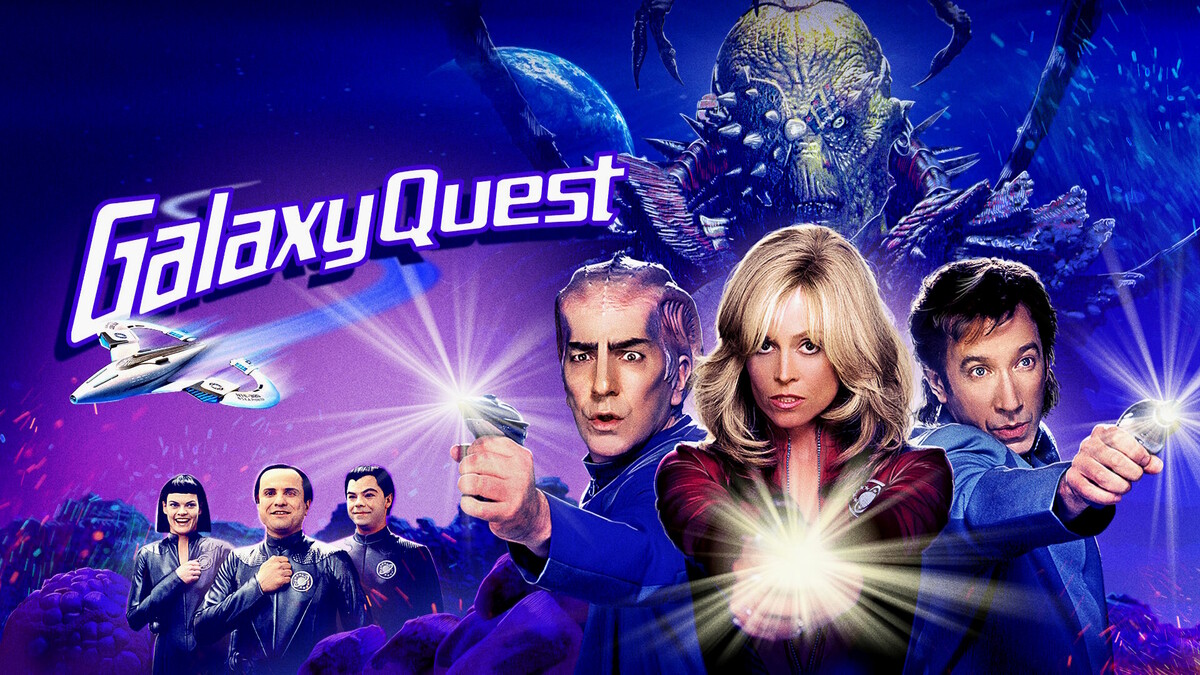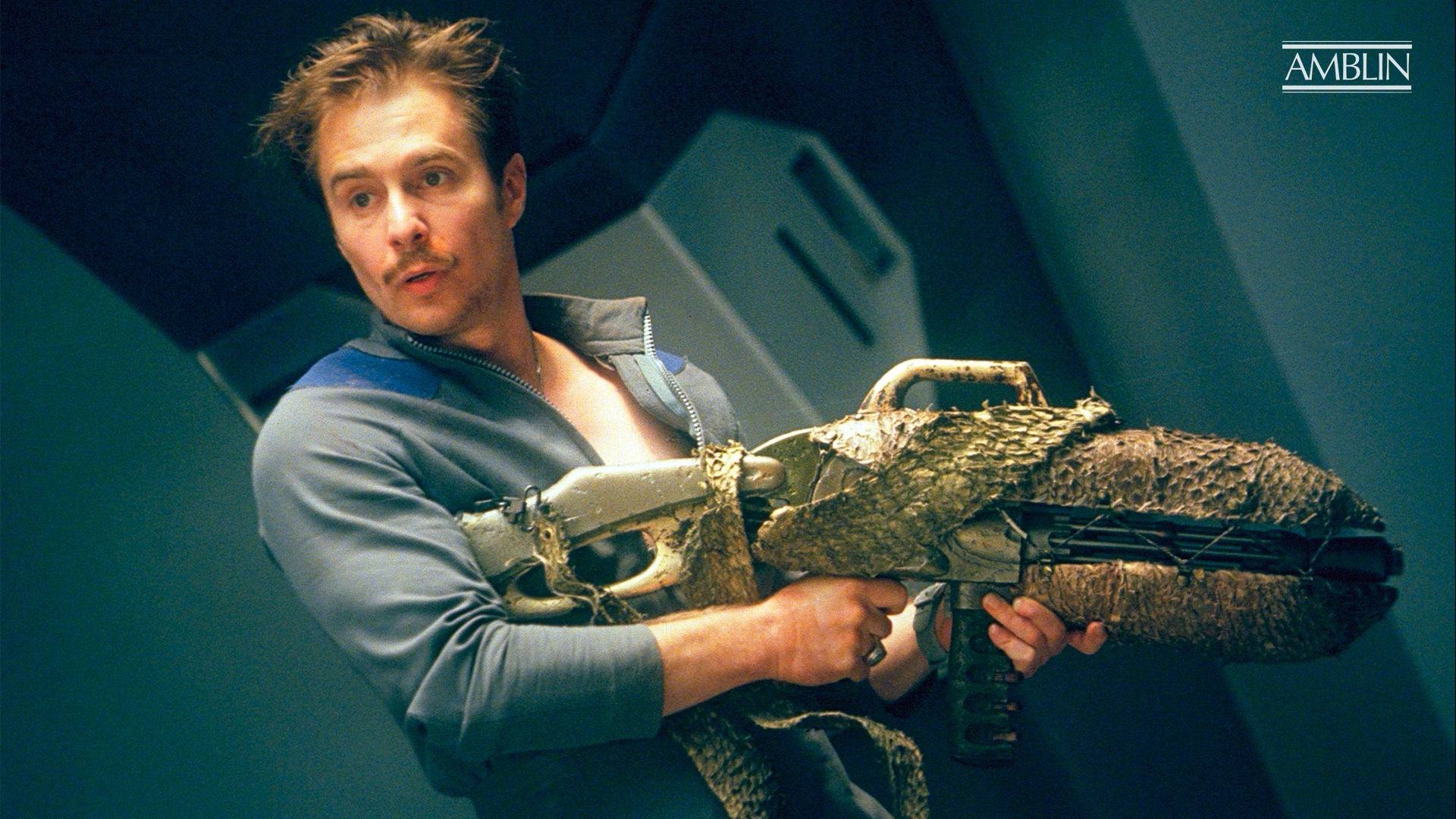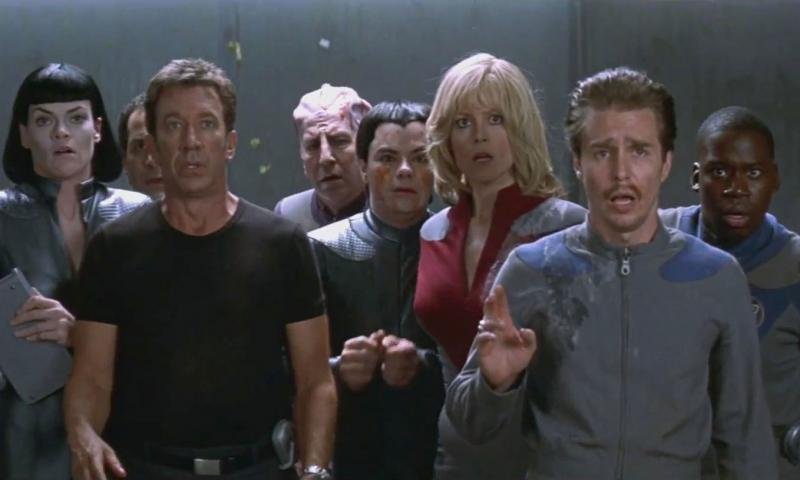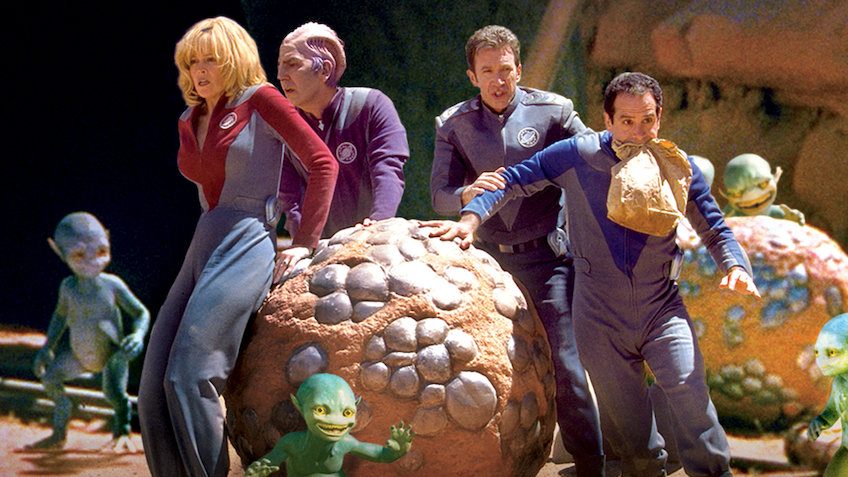Galaxy Quest (1999)

Galaxy Quest (1999) is a comedic science fiction satire directed by Dean Parisot. Written by David Howard and Robert Gordon, the film cleverly parodies both the space exploration genre and the world of television fandom. Featuring an ensemble cast including Tim Allen, Sigourney Weaver, Alan Rickman, Tony Shalhoub, Sam Rockwell, and Daryl Mitchell, Galaxy Quest tells the story of a group of actors from a cult TV show who are mistakenly recruited by real extraterrestrials to help save their planet. The film’s blend of humor, heart, and self-awareness makes it a standout in both the science fiction and comedy genres.
The film’s premise centers around the cast of Galaxy Quest, a once-popular science fiction TV series similar to Star Trek. The actors, who have long since been typecast into their roles, are now relegated to attending fan conventions and living off their past fame. Tim Allen plays Jason Nesmith, the star of the show, who struggles with his fading celebrity status. Sigourney Weaver portrays Gwen DeMarco, the beautiful yet underappreciated communications officer, while Alan Rickman plays Alexander Dane, the actor who resents his role as the Shakespearean alien, Dr. Lazarus. These characters, though flawed and somewhat cynical, are given depth, which allows the audience to empathize with their journey, even as they parody classic tropes of the space genre.
What makes Galaxy Quest particularly engaging is how it satirizes the world of science fiction fandom. The actors’ transition from washed-up TV stars to accidental heroes mirrors the disillusionment many actors experience when they are trapped in the typecasting of iconic roles. The film also explores the humorous yet poignant divide between the cast’s real lives and their on-screen personas. For example, Jason Nesmith (played by Tim Allen) is initially dismissive of his fans, treating them as little more than reminders of his past. However, as the story unfolds, he grows to appreciate the genuine connection between the fans and the work he once did, which adds an emotional layer to the comedy.
The plot takes an unexpected turn when the actors are mistakenly abducted by a group of real extraterrestrials who believe the actors’ past performances were real. The Thermians, a race of aliens, think that the actors’ portrayal of space explorers was a documentary, and they enlist them to help fight an evil warlord who threatens their planet. This premise leads to hilarious moments as the actors, who have no actual space experience, must now navigate real danger and rise to the occasion. The combination of their self-awareness and growing competence adds to the film’s charm, as they learn to embrace their roles as heroes, both on and off-screen.

In addition to the main cast, Galaxy Quest features standout performances from the supporting characters, including Tony Shalhoub as the quirky engineer, Fred Kwan, and Sam Rockwell as the paranoid actor, Guy Fleegman, who played a minor character on the show but is desperate to be taken seriously. The chemistry between the actors is exceptional, with their individual performances enhancing the film’s comedic and emotional depth. Alan Rickman’s portrayal of the Shakespearean actor, Dr. Lazarus, is particularly memorable, as he effortlessly balances sarcasm and sincere vulnerability, creating one of the film’s most beloved characters.

The film’s success also lies in its unique ability to mix humor with a deeper commentary on fame, identity, and the power of fandom. It’s a satire that both pokes fun at the conventions of science fiction and celebrates them. Galaxy Quest is self-aware without being overly cynical, offering both a critique of the entertainment industry and a heartfelt tribute to the fan cultures that keep beloved shows alive long after they’ve gone off the air. It ultimately conveys the message that, while fame may be fleeting, the impact of a story can endure through the passion of its audience.

In conclusion, Galaxy Quest (1999) is a delightful and witty film that blends science fiction with comedy, offering both a satirical take on the entertainment industry and a heartfelt story about redemption and self-worth. With its strong ensemble cast, clever writing, and playful exploration of fandom, it has become a cult classic. The film’s themes of identity, legacy, and finding purpose in unexpected places resonate long after the laughter subsides, making Galaxy Quest not only a comedic gem but also a thoughtful reflection on the nature of fame and human connection.











